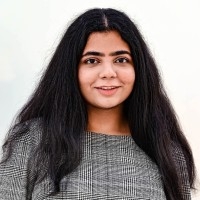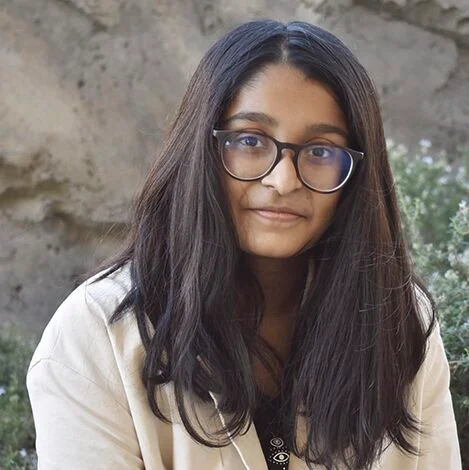AN INTERVIEW OF YOUNG ACHIEVER UDITI SHARMA - FOUNDER AND EXECUTIVE DIRECTOR OF ELEVATE TECH (A NON-PROFIT ORGANISATION).

Uditi Sharma is a 16-year-old change-maker passionate about using technology for social good. She is the founder and executive director of Elevate Tech, a non-profit organisation with a mission to empowering gender minorities through technology and entrepreneurship.
She speaks about her journey. Founder of the First Step, a YouTube channel that features interviews of young achievers.
What prompted you to set up Elevate Tech?
As my Class IX examinations got over, I had a lot of free time to learn about computer science and participate in online coding events. I had been coding apps and websites since middle school, so this seemed like the perfect opportunity for me. However, noticed that barely any girls were present at these events- if any at all! saw potential in turning such events into an avenue for bringing in more girls into the tech space. So, was motivated to create an organisation to empower young girls like myself who were just venturing into the world of technology. Back when started the non-profit. I didn't know it would become something so big and involve and impact thousands of people worldwide. I started by doing small workshops teaching my friends and their siblings how to code. To this day, teaching code is one of my favorite things to do. Slowly, my initiative became more extensive, and more people attended our workshops and events. As the organisation grew, we spent a lot of time brainstorming ideas for a large-scale, impact-driven event that would allow attendees to use technology for social good and empower others around them. This resulted in Elevate Hacks, a 48-hour hackathon. After Elevate Hacks, we have dedicated our time to other events, such as our fellowship and mentorship programmes. We're currently planning to host the second edition of our hackathon this year.
Tell us more about Elevate Hacks. What kind of impact did it create?
We held our first hackathon event in July 2020. We had over 600 young girls from 35 countries around the globe who got together to create websites and apps that solved problems in their communities, resulting in the development of 65 products within two days! I knew my efforts from over six months serving as the lead and sponsorships director of the hackathon paid off when I saw the fantastic community of problem-solvers and entrepreneurs we had brought together.
In addition, we had over 20 guest speakers, workshop hosts, and panellists throughout the event to keep our audience engaged and encouraged, teaching them upcoming technologies such as machine learning and iOS app development.
What is your motivation to organise hackathons and similar events? What are your next steps?
Hackathons inspire me because of their focus on collaboration and problem-solving. At hackathons, you can find solutions to the world's biggest problems with the support of so many others around you. I firmly believe technology and entrepreneurship can together solve the world's most pressing issues and it's so important to have young women be a part of this change.
As the hackathon ended, we researched improving the experiences of our hackers and began working on other impactful events. We learned the need for a long-term engagement that offered the same supportive hackathon culture but gave our participants flexibility with their time- and came up with the Elevate Tech fellowship programme. This is a three-month-long, grant-based fellowship programme that pairs young girls passionate about using STEM for social good and provides support from industry mentors and experts as they develop their products.
You're the leader of Girl Up Dubai. Tell us more about that.
I’ve been part of the Girl Up for over a year now, serving as a club leader. coalition leader, and most recently as the leader of the Girl Up Gender Equality Action Group leader at the United Nations Foundation's Big Brainstom. I worked with my team to create a gender-focussed climate advocacy tool-kit and presented our idea to the judging panel. This process took an intense amount of time and has made me ready to further step into the world of research-motivating me to continue working on solutions to further gender equality.
What are the projects you are working on?
love to code, and I’ve been making apps for over five years now. I have recently been working on an app called Vision Al, which aims to empower visually impacted individuals through artificial intelligence. I was inspired to work on Vision Al after seeing my grandmothers struggles with visual impairment. This app uses machine learning and image recognition to assist visually aided people in doing their everyday chores. I think the youth must learn how to solve problems using technology due to its accessibility. This urge to empower the youth through technology motivated me to create and lead IHS Launchpad, a start-up incubator at my high school with over 120 members.
What are your future plans?
Although I don't have a set path yet, I’m excited to explore technology through the lens of entrepreneurship 3 and work on impactful start-ups and non-profits. Through my work at Elevate Tech and beyond, I aspire to not only shatter the glass ceiling but also build the elevator for other women to join the revolution by bridging the gender and socio-economic gap in technology and education.
Picture Credit : Google
